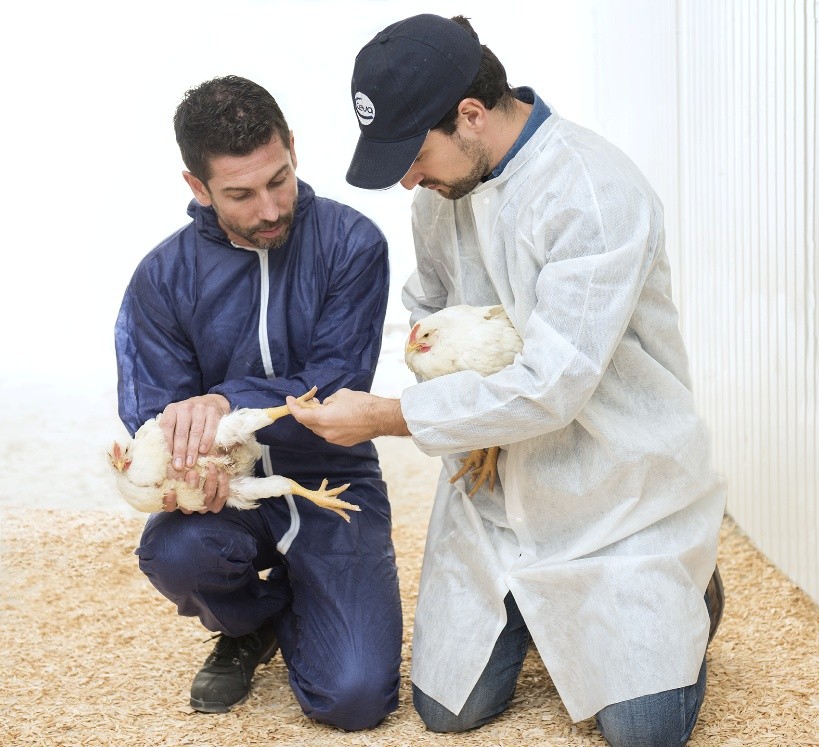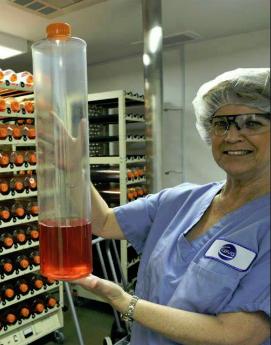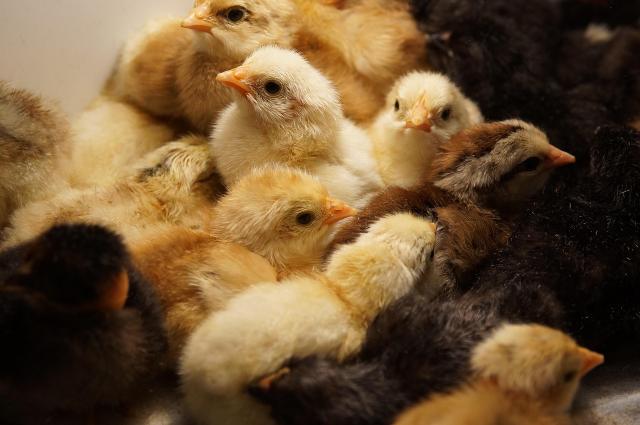In today’s fast-changing poultry industry, keeping your flock healthy is more important than ever. Vaccines have changed the way poultry producers protect their birds from disease. One vert specific type, called autogenous vaccines, offers a custom-made solution designed to target the specific pathogens found on individual farms.
These vaccines are not just tools; they represent a commitment to enhancing the health and welfare of poultry, ensuring that your production systems remain resilient against various viral and bacterial threats.
In this article, we delve into the significance of autogenous vaccines, exploring their role in managing diseases like Campylobacter and improving overall flock health.

What Are Autogenous Vaccines ?
Autogenous vaccines are specially formulated vaccines created from pathogens isolated from the very flock they aim to protect. Unlike commercial vaccines, which target a broad spectrum of diseases, these tailored solutions cater to the unique health challenges of a specific farm. The process begins with the collection of isolates from infected birds, followed by a thorough analysis to determine the most effective strain for vaccination.
The beauty of autogenous vaccines lies in their specificity. By choosing the exact strain that poses a threat to your birds, you can minimize the risk of disease outbreaks and boost your flock’s immunity. For example, if a particular strain of Campylobacter is affecting your birds, developing an autogenous vaccine from that strain can significantly reduce its impact. Find more information on https://poultry.ceva.com/.
Implementing autogenous vaccines involves a partnership with a veterinarian who understands the health status of your flock. Together, you can address specific challenges, creating a customized vaccination program that supports better health and productivity. This process not only improves the immediate response to disease but also contributes to long-term production stability.
In summary, autogenous vaccines offer a targeted and effective strategy for controlling highly virulent bacterial or viral strains, enabling producers to address specific pathogens present on their farms. Their development and implementation represent a proactive measure in disease control, which is vital for the sustainability of poultry production.
The Advantages of Autogenous Vaccines
When considering vaccination strategies for your poultry, autogenous vaccines offer several compelling advantages. One of the primary benefits is their efficacy against local disease strains that may not be covered by standard vaccines. This is particularly important in environments where viral infections or bacterial challenges, such as Campylobacter infestations, vary significantly between farms.

Real-world data from farms employing autogenous vaccines demonstrate a marked decrease in disease incidence and severity. By utilizing vaccines that specifically target the pathogens affecting your flock, you can enhance the birds’ immune response more effectively than with generic vaccines.
Another key advantage is the potential for improved health outcomes across your flock. Stronger immunity translates to better growth rates, reduced mortality, and overall enhanced production metrics. With healthier birds, you can expect higher yields and a more profitable operation.
Moreover, the use of autogenous vaccines can also lead to a reduction in antibiotic usage. As antibiotic resistance becomes a growing concern in animal agriculture, implementing effective vaccination strategies can help mitigate the need for these medications, promoting not only animal health but also public health. Additionally, a focus on preventive care through tailored vaccination can position your farm as a responsible producer committed to sustainability and animal welfare.
In conclusion, the advantages of autogenous vaccines are clear. They provide targeted protection, improve flock health, and can contribute to more sustainable production practices, ultimately leading to a more successful poultry operation.
The Process of Developing Autogenous Vaccines
Developing autogenous vaccines is a meticulous process that requires collaboration between poultry producers and veterinary professionals. It starts with identifying the health issues plaguing your flock. This often involves conducting thorough diagnostics to isolate the pathogens in question. Once samples are collected, they are sent to specialized laboratories for testing.
In the lab, the isolates undergo rigorous analysis to determine their virulence and the appropriate response from the immune system. This step is crucial because the goal is to create a vaccine that will provoke a strong immunological reaction without causing disease. The laboratory technicians work on formulating the vaccine, ensuring that it meets the specific needs identified during the diagnostic phase.
Once the vaccine is developed, it must undergo safety and efficacy testing to ensure it performs as expected. This involves administering the vaccine to a small sample of birds and monitoring their response. Only after confirming its effectiveness and safety can the vaccine be rolled out to the entire flock.
After successful trials, the next phase is the implementation of the vaccination program. Producers must ensure that vaccination schedules are adhered to, as consistency is key in building immunity across the flock. Record-keeping also plays a significant role, allowing you to track the health outcomes following vaccination and to adjust strategies as needed.
In summary, developing autogenous vaccines is a detailed and collaborative effort, requiring careful diagnostics, laboratory work, and diligent implementation on the farm. This process underscores the importance of tailored solutions in maintaining poultry health and enhancing farm productivity.
Integrating Autogenous Vaccines into Management Practices
Integrating autogenous vaccines into your poultry management practices requires a comprehensive strategy that encompasses not just vaccination but also overall flock health. This involves a multi-faceted approach that includes biosecurity measures, nutrition, and stress management, all of which play critical roles in maximizing the effectiveness of vaccination.
Biosecurity is the first line of defense against disease. Ensuring that your farm implements strict biosecurity protocols can help minimize the introduction and spread of pathogens. This includes controlling access to the farm, proper sanitation of equipment, and managing visitors.
Nutrition also significantly impacts the immune response of your flock. A balanced diet rich in essential vitamins and minerals can enhance the birds’ ability to respond to vaccinations. Consider working with a nutritionist to tailor feed formulations that support the health of your flock, especially during and after vaccination periods.
Stress management is another crucial aspect that affects vaccine effectiveness. Stressors such as overcrowding, poor ventilation, and abrupt environmental changes can compromise immune responses. Implementing humane handling practices and maintaining optimal living conditions will help keep your birds healthy and responsive to vaccinations.

Finally, continuous monitoring and evaluation of your flock’s health status is essential. Regular health checks and tracking disease incidence can help you assess the effectiveness of your vaccination program and make adjustments as necessary. Engage with your veterinarian to ensure that your vaccination strategy aligns with your flock’s health needs.
By integrating autogenous vaccines into a broader management strategy, you not only support the immediate health of your poultry but also promote long-term productivity and sustainability.
Future Perspectives on Autogenous Vaccines in Poultry
As the poultry industry faces increasing challenges from emerging diseases and the pressing need for sustainable practices, the future of autogenous vaccines looks promising. Advances in biotechnology and vaccine development are likely to enhance the efficiency and efficacy of these tailored solutions.
One of the most exciting prospects is the potential for combining multiple pathogen targets into a single autogenous vaccine. This approach could simplify vaccination protocols and provide even broader protection. Researchers are also exploring the use of novel adjuvants that can enhance immune responses, making vaccines more effective against challenging pathogens.
Moreover, with the growing emphasis on precision agriculture, the role of data analytics in vaccine development and deployment is becoming more prominent. By leveraging data from farm operations, veterinarians can better predict disease outbreaks and customize vaccination schedules accordingly. This data-driven approach will lead to more proactive health management strategies.
The collaboration between researchers, veterinarians, and producers will be crucial in driving advancements in this field. As we gather more insights into poultry health, the development of autogenous vaccines will continue to evolve, presenting innovative solutions to combat disease and improve overall flock resilience.
Lastly, education and awareness about the benefits of autogenous vaccines will play a significant role in their adoption. Producers must be informed about the science behind these vaccines and how they can be integrated into existing health management protocols. Industry stakeholders, including veterinarians and agricultural organizations, should work together to disseminate this information effectively.
In conclusion, the future of autogenous vaccines in poultry holds great promise. With advancements in technology, data utilization, and a collaborative approach, these tailored solutions can significantly contribute to healthier flocks and a more sustainable poultry industry. As we reflect on the critical role of autogenous vaccines in poultry health, it becomes clear that tailored solutions can significantly enhance flock management.
By recognizing the specific health challenges faced on individual production sites, you can implement targeted vaccination strategies that lead to healthier birds, improved production, and greater sustainability.
The journey of developing and integrating autogenous vaccines into your poultry operation requires commitment and collaboration. Engaging with veterinary professionals, adhering to best management practices, and remaining open to innovation will empower you to navigate the complexities of poultry health effectively.
In an industry where resilience and adaptability are crucial, embracing tailored vaccination strategies is not merely a choice; it is a necessity. By investing in the health of your flock today, you pave the way for a more productive and sustainable poultry future.



